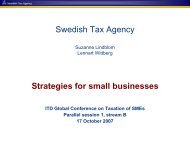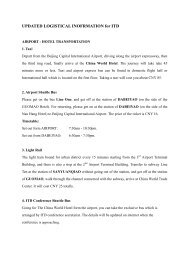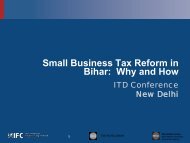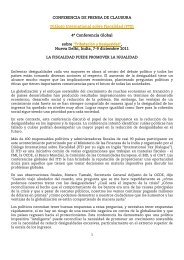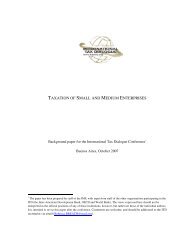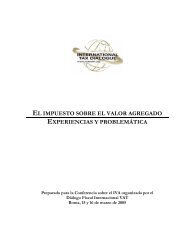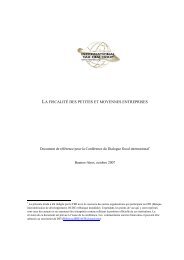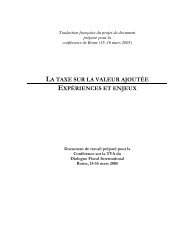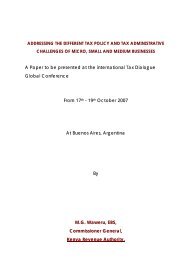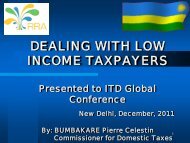Arcotia Hatsidimitris - International Tax Dialogue
Arcotia Hatsidimitris - International Tax Dialogue
Arcotia Hatsidimitris - International Tax Dialogue
You also want an ePaper? Increase the reach of your titles
YUMPU automatically turns print PDFs into web optimized ePapers that Google loves.
48 – 5. MAINTAINING PROGRESS, TACKLING DELAY<br />
advisors knew what to expect from the tax administration and publication could help demonstrate<br />
consistency of approach and therefore support actions taken by the tax administration. <strong>Tax</strong><br />
administrations, business and their advisors noted that where guidance is published it can be very<br />
helpful, both to business and the tax administration, to consult with external stakeholders whilst the<br />
guidance is still in draft so that issues or concerns can be addressed by the tax administration before<br />
the guidance is finalised, usually leading to a much better product.<br />
Deliberate obstruction<br />
Most tax administrations recognise the need to regularly reassess the scope of their audits and<br />
enquiries to ensure that they remain relevant. In a similar way they need to ensure the reasonableness<br />
of their requests, particularly where they set tight deadlines. However, sometimes despite all efforts to<br />
do this and engage with a business, tax administrations can be faced with outright opposition to their<br />
attempts to undertake an audit or enquiry. Where this happens they need to have ready strategies that<br />
can be deployed to counter such obstruction; for many tax administrations this can involve the use of<br />
information powers, the ability to estimate assessments and to close cases using legal processes.<br />
Having the ability to use all of the means of tackling delay outlined in this chapter should, however,<br />
mean that these are only strategies of last resort and seldom need to be used.<br />
Key thoughts for chapter<br />
Most tax administrations have experience of transfer pricing audits or enquiries that run for many<br />
years. Often the cause of delay lies in the fact intensive nature of transfer pricing work and<br />
disagreements over the provision of business records. Early discussion about the aspects of the<br />
business to be reviewed, carefully focused requests for records and agreed timetabling can ensure a<br />
speedy and effective outcome to audits or enquiries. The development of alternative dispute resolution<br />
techniques in several countries suggest that this approach may be of use in transfer pricing cases.<br />
DEALING EFFECTIVELY WITH THE CHALLENGES OF TRANSFER PRICING © OECD 2012



